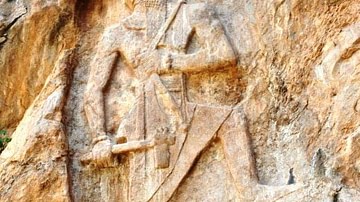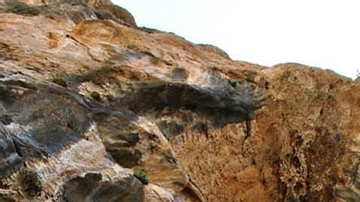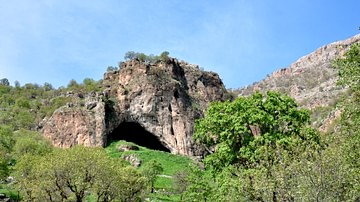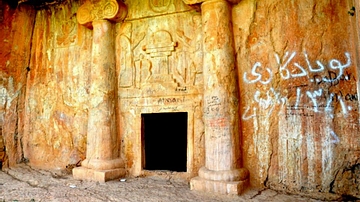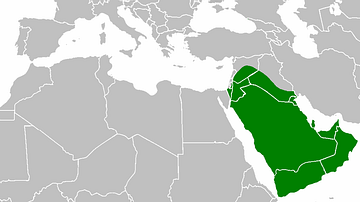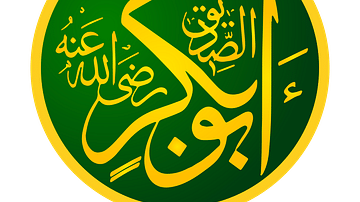Illustration
Bakr Awa is a mound southeast of the modern city of Sulaimaniya, near the city of Halabja, within the Sharazor plain, Iraqi Kurdistan. A German archaeological team headed by Professor Peter Miglus (of the University of Heidelberg) has been excavating the site since 2010 in cooperation with the Sulaimaniya Antiquities Directorate and the Sulaimaniya Museum. The site underwent limited excavations by Ephraim Speiser in 1927 CE. During the years 1960-1961 CE, Iraqi archaeologists (of the Directorate General of Antiquities in Baghdad, Iraq) did extensive excavations and field studies on the site. Numerous artifacts, from the Islamic period back to the late Bronze Age, have been recovered within different ancient layers/levels.
About the Author
Cite This Work
APA Style
Amin, O. S. M. (2014, September 23). The Ancient Mound of Bakr Awa, Sulaimaniya, Kurdistan. World History Encyclopedia. Retrieved from https://www.worldhistory.org/image/3060/the-ancient-mound-of-bakr-awa-sulaimaniya-kurdista/
Chicago Style
Amin, Osama Shukir Muhammed. "The Ancient Mound of Bakr Awa, Sulaimaniya, Kurdistan." World History Encyclopedia. Last modified September 23, 2014. https://www.worldhistory.org/image/3060/the-ancient-mound-of-bakr-awa-sulaimaniya-kurdista/.
MLA Style
Amin, Osama Shukir Muhammed. "The Ancient Mound of Bakr Awa, Sulaimaniya, Kurdistan." World History Encyclopedia. World History Encyclopedia, 23 Sep 2014. Web. 13 Apr 2025.



